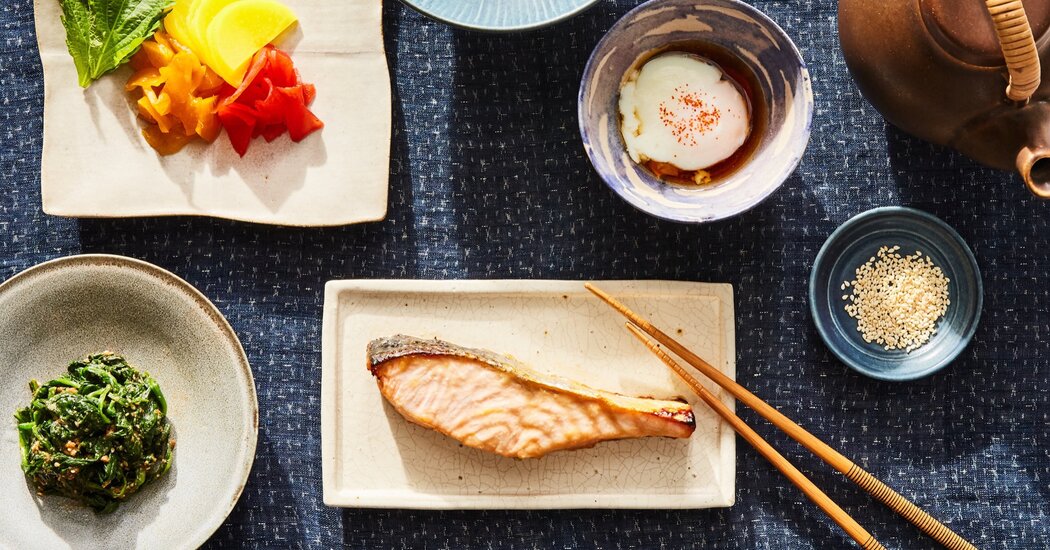An astrological concept, a Saturn return is considered a time of great upheaval — “growing older, burning out at work, increasingly higher bills, a couple of monumental life milestones,” as the astrologer Aliza Kelly has put it. According to NASA, it takes Saturn about 29.4 years to orbit the sun — or for it to return to the same spot in the sky as when you were born, signaling the end of a period of change (if you believe in astrology). As someone who is nearing the end of his return, I’ve never felt more upheaved by the colossal changes I’ve experienced from my late 20s to my early 30s, including but not limited to: new job, new apartment, new boyfriend. New life! One thing I’ve started to do that gets me a little closer to settling into this new beginning — my 30s — is eating Japanese breakfast.
The eclectic spread, called ichiju-sansai (“one soup, three dishes”), is beyond just a savory meal that soothes both soul and stomach lining first thing in the morning. These restorative breakfasts, centered on a single bowl of rice, are meant to be balanced, a careful mix of carb, protein and vegetable: say, with a perfectly steamed pot of medium-grain rice, a sliver of melting fish run through with miso, a fistful of blanched spinach draped in ground sesame seeds, a quivering onsen egg oozing yolk and, when I have the forethought, a teacup of homemade miso soup. An array of pickles pulled from the refrigerator — cucumbers, plums, radishes and whatever is in my house kimchi jar at the time — completes the meal.
Cooking an elaborate breakfast for the people you love most? It’s not just an act of service.
The first time I traveled to Seoul, my family and I landed late at night, jetlagged, and slept on the guest-room floor of my Aunt Young’s apartment complex near Olympic Park. When we awoke the next morning, we stumbled downstairs to a dining table brimming with the most elaborate banchan, stews, fishes and pickles. I remember my aunt’s bap (“rice” or “meal” in Korean) most vividly: It was shiny, fluffy and moist, a texture I try to recreate every time I make rice for myself today. She had also made us kalbi jjim, a long-braised party dish that’s so labor-intensive you eat it only once or twice a year. As a 5-year-old, when I asked Aunt Young if I could spoon some of the rich, coveted sauce onto my rice, she said: “Of course you can. I skimmed the fat off for you.”
What does it mean to cook such an elaborate breakfast for the people you love most? It’s not just an act of service. I’ve learned recently that cooking well for yourself, or for yourself and a partner, is also a means to true happiness, a way to honor your time together by making daily life count. So listen to this: Your Japanese breakfast spread should reflect not necessarily your aspirations but your quotidian preferences, your crisper drawer at the moment, your freezer meats, your kitchen practice. I don’t always roast a fillet or brew a soup; most mornings, I can barely pour myself a cup of coffee. But when I have fish and when I have soup for dinner the night before, you can bet those leftovers will go into my Japanese breakfast.







